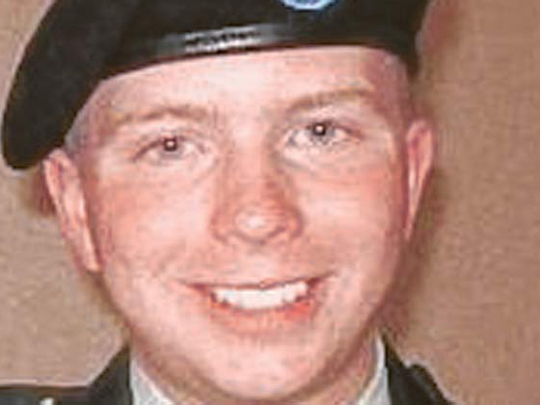
Fort Meade, Maryland: A US Army private charged with sending mountains of classified documents to the secret-spilling website WikiLeaks has offered to take responsibility for the leak by pleading guilty to reduced charges in a move that military justice experts on Thursday called unusual and potentially pointless.
The unilateral offer, if accepted by the military judge, would still leave the government free to prosecute Pfc. Bradley Manning on the original 22 counts, including aiding the enemy, punishable by life imprisonment.
Prosecutors could choose not to pursue those charges but “I find it hard to imagine that happening in this case,” said Eugene Fidell, a former Coast Guard judge advocate who teaches military law at Yale. “The government has had a very long time to conduct extensive investigations and presumably has its evidence ready to roll,” Fidell said.
Defence attorney David Coombs revealed the offer on Wednesday during a pretrial hearing. The judge, Army Col Denise Lind, will likely consider the plea at a Dec. 10 hearing unless the offer is withdrawn.
Manning would acknowledge he sent WikiLeaks hundreds of thousands of classified Iraq and Afghanistan war reports and State Department diplomatic cables, but wouldn’t plead guilty to aiding the enemy or to violations of federal espionage and computer laws.
It is the first indication that the 24-year-old intelligence analyst will publicly acknowledge he leaked the records. The government regards the leak as a national security breach but anti-secrecy advocates, including Pentagon Papers leaker Daniel Ellsberg, say Manning is a hero. He has been in custody since his arrest in Iraq in May 2010. He is currently in pretrial confinement at Fort Leavenworth, Kansas.
Coombs also said Wednesday that Manning has chosen to be tried by a military judge, not a jury. His six-week trial is scheduled to begin February 4.
The plea offer, if accepted, could shorten the trial by reducing the number of witnesses the government would have to call to prove any charges, said Washington attorney Michael Navarre, a Navy judge advocate and adviser to the National Institute of Military Justice, a nonprofit, public-education group.
Navarre said a guilty plea could also cause the judge or sentencing jury to view Manning in a favourable light.
“One of the goals of accepting responsibility is to curry favor,” Navarre said.
The hearing continued Thursday on a defense motion seeking dismissal of the case for lack of a speedy trial. It’s been two years and five months since Manning’s arrest. His arraignment came 635 days later, far in excess of the 120-day rule. Coombs contends military commanders rubber-stamped all prosecution requests for delays and improperly excluded other periods from the speedy-trial clock












